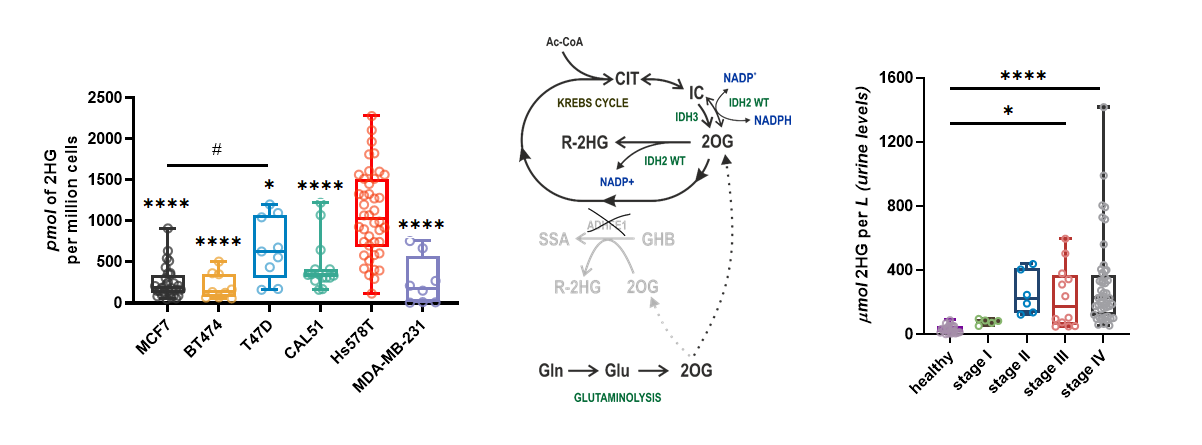New findings may help to improve diagnostic methods for breast cancer
2-hydroxyglutarate (2HG) is a metabolite resembling normal cell metabolite 2-oxoglutarate (2OG), however, its accumulation in cells might lead to amplification of processes in cancer development. R-2HG is a product or bi-product of several metabolic enzymes, including mitochondrial ones. We investigated whether production of mitochondrial 2HG is elevated in breast cancer cell lines and identified active competition for initial substrate, 2OG, between enzymes isocitrate dehydrogenase IDH2 and alcohol dehydrogenase ADHFE1. We have also investigated possible substrate and cofactor NADPH channeling between the two IDH2 molecules within mitochondria. We characterized several situations when either IDH2 and ADHFE1 produce a non-negligible amount of 2HG, which is then actively exported from cells. This can serve as a basis for clinical application of our findings. We have therefore quantified 2HG levels in the urine of breast carcinoma patients after resection of their tumors and showed a positive correlations between cancer stages and 2HG levels. Note that cancer stages I to IV differ by the existence, localization and severity of metastases. A future extension of these findings might help to improve diagnostic approaches of breast carcinoma.
Špačková; Jitka - Gotvaldová; Klára - Dvořák; Aleš - Urbančoková; Alexandra - Pospíšilová; K. - Větvička; D. - Leguina-Ruzzi; Alberto A. - Tesařová; P. - Vítek; L. - Ježek; Petr - Smolková; Katarína . Biochemical Background in Mitochondria Affects 2HG Production by IDH2 and ADHFE1 in Breast Carcinoma . Cancers (Basel). 2021; 13(7)); 1709 . IF = 6.639 [ASEP] [ DOI ]

